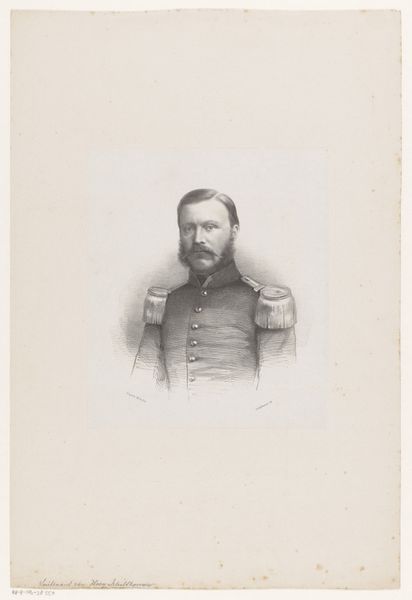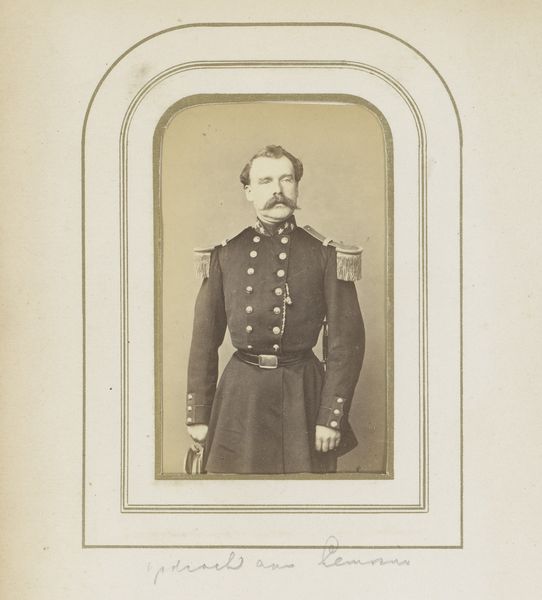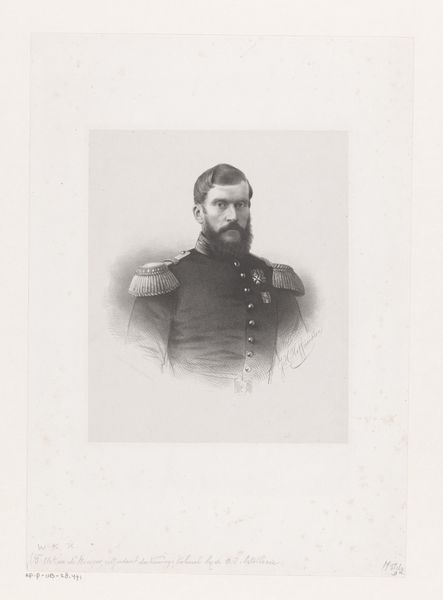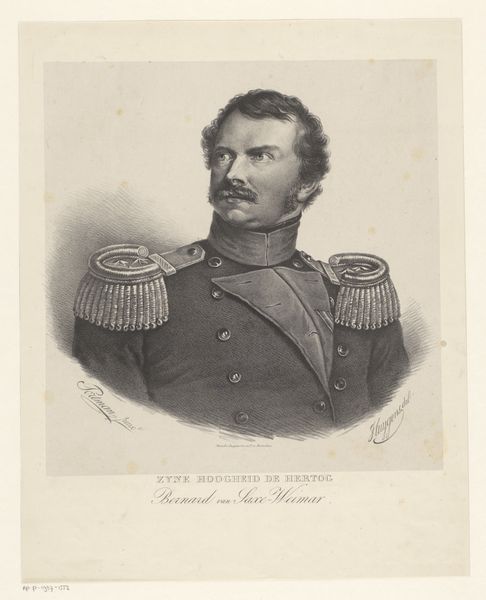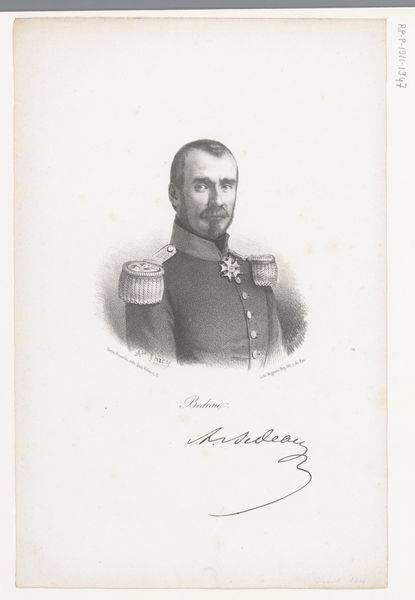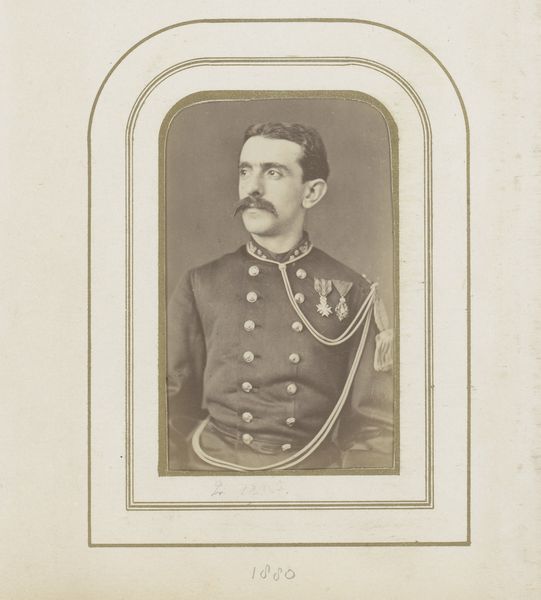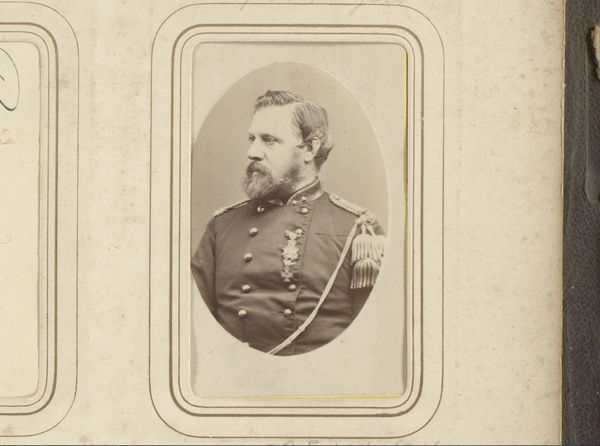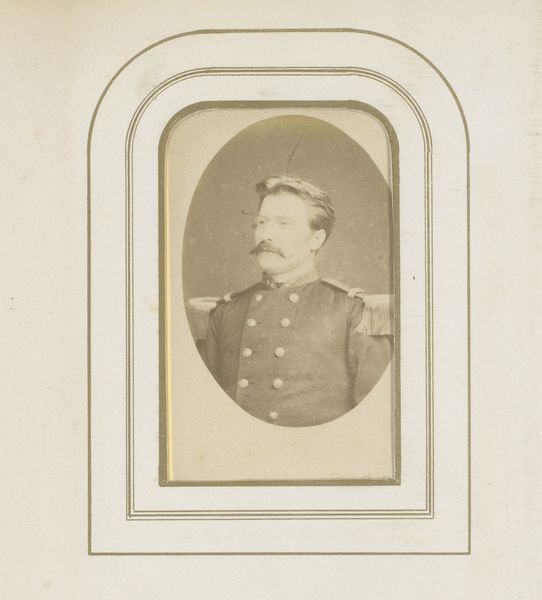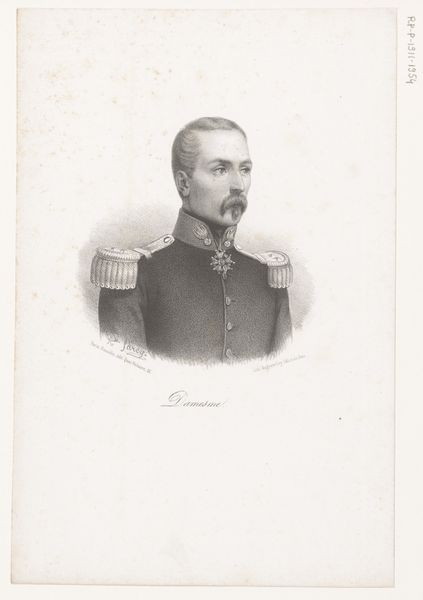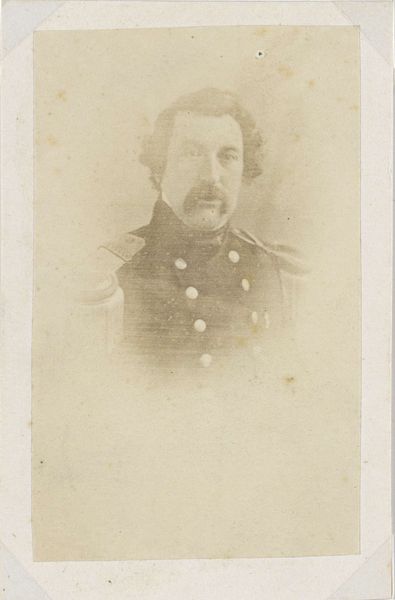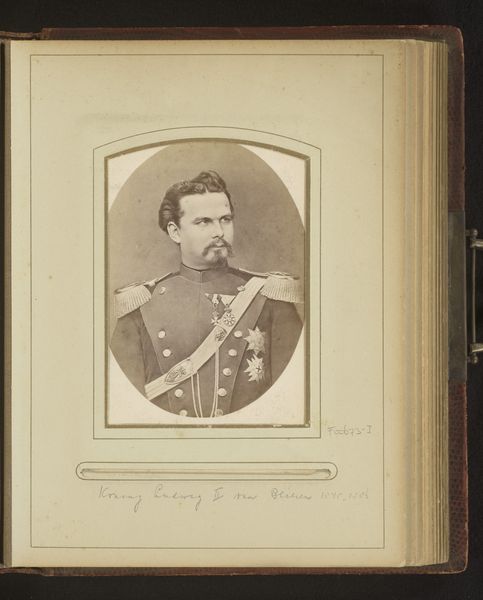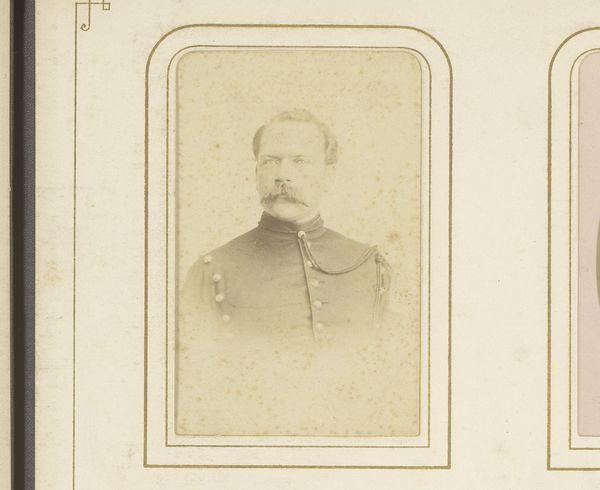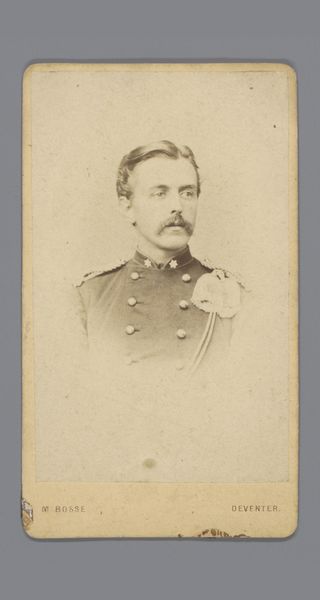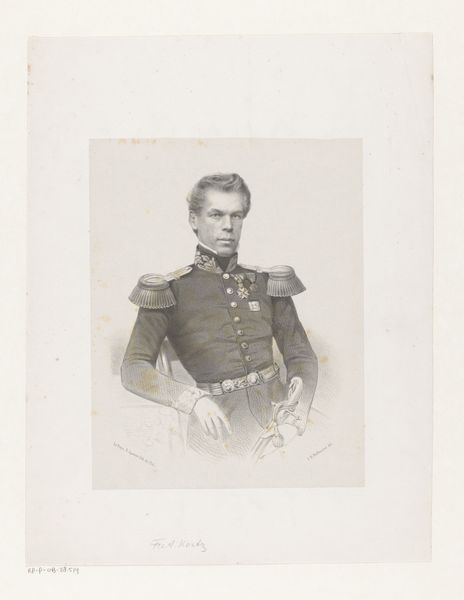
print, photography, engraving
portrait
archive photography
photography
historical photography
history-painting
academic-art
engraving
realism
Dimensions: height 270 mm, width 215 mm, height 335 mm, width 250 mm
Copyright: Rijks Museum: Open Domain
Editor: Here we have a print entitled "Portret van R. Numans," created before 1860, housed right here at the Rijksmuseum. It looks like it's an engraving, or some kind of print from photography. The stern expression on his face and the detail in his uniform really stand out. What do you make of it? Curator: It's important to address the inherent qualities of this work. Note the precision in line work. It is meticulously rendered to create variations in texture, and subtle gradations of tone which model the subject's face and uniform. Consider how this linearity shapes the composition. Editor: Yes, I see how the lines really define the form. Curator: Indeed. Furthermore, the work employs a classical portrait format, tightly cropped, placing emphasis solely on the sitter. The light seems to come from the left, subtly highlighting one side of Numans’s face, casting the other into shadow and therefore adding a certain depth. Editor: So, it’s all about how the formal choices affect how we see it. But, isn’t the subject's pose significant? Curator: A very good question. His posture, erect and forward-facing, primarily serves the compositional goal to present R. Numans formally. What could this contribute to the portrait's success? Editor: I suppose I was looking for more, but its simplicity is itself effective. I’m understanding how focusing on these elements enhances the overall reading of the image. Curator: Precisely. Recognizing the intrinsic artistic techniques enables a fuller experience of the work.
Comments
No comments
Be the first to comment and join the conversation on the ultimate creative platform.
